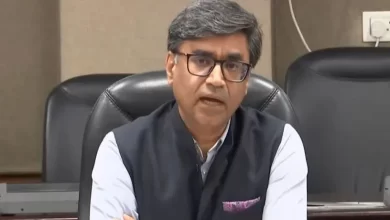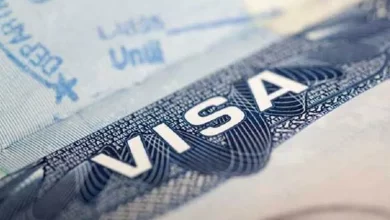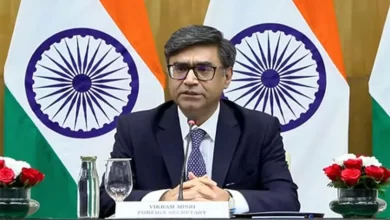DUP urged to restore power-sharing in Northern Ireland after Sinn Féin poll triumph

The Democratic Unionist party (DUP) is facing renewed calls to restore power-sharing in Northern Ireland after a Sinn Féin electoral “tsunami” reshaped local government.
Chris Heaton-Harris, the secretary of state for Northern Ireland, on Sunday joined a chorus urging the DUP to end a boycott that has paralysed the executive and assembly at Stormont. “Alongside the new councils, it remains my hope to see the assembly and executive return to work,” he said.
Michelle O’Neill, Sinn Féin’s deputy leader and putative first minister, said her party’s performance in the 18 May council elections – final results were announced on Saturday night – reflected a desire to revive Stormont.
“It is time to make politics work for all people and communities, and to build a better future for everyone,” she said.
The appeals came after Sinn Féin made stunning gains and delivered what one former DUP leader said was a “wake up and smell the coffee moment” for unionism.
In a contest for 462 seats spanning 11 councils, Sinn Féin swept past its unionist rival to become the dominant force in local government. It won 144 seats, a gain of 39 from the 2019 election when it won 105. It made breakthroughs across the region, including in DUP heartlands. The party almost doubled its vote in Balmoral, Belfast’s most affluent ward.
The DUP won 122 seats, unchanged from four years ago. The non-aligned Alliance party won 64, a gain of 14 that vaulted it into third position. The Ulster Unionist party (UUP) slumped to 54 seats, a loss of 21, and the Social Democratic and Labour party (SDLP) dropped to 39, a loss of 20. Smaller parties and independents made up the rest.
On a turnout of 54.7%, a slight rise from 2019, Sinn Féin won 30.9% of first preference votes, versus 23.3% for the DUP, 13.3% for Alliance, 10.9% for the UUP and 8.7% for the SDLP. The results consolidated Sinn Fein’s success in last year’s assembly elections – when it eclipsed the DUP as the biggest party – and presented unionism with another reminder of its shrivelling demographic and political position.
“For unionism, it’s perhaps a ‘wake up and smell the coffee’ moment,” Edwin Poots, a former DUP leader, told the BBC. Naomi Long, the Alliance leader, called the result a “tsunami” of support for Sinn Féin. Nationalist parties won 19,000 more first preference votes than unionist parties, according to Nicholas Whyte, a psephologist with the consultancy Apco Worldwide.
Sinn Féin tapped nationalist resentment at the DUP boycott of power-sharing – which has blocked O’Neill from becoming first minister – by making her the focus of a presidential-style campaign that siphoned off SDLP support.
However, the DUP’s solid vote reflected a tactical victory for its leader, Sir Jefferey Donaldson, who faced down challenges on both flanks from the moderate UUP and the hardline Traditional Unionist Voice.
Boycotting Stormont to protest post-Brexit trading arrangements has been popular with unionist voters. However, Donaldson is believed to be seeking a way to revive power-sharing without losing face.
There is speculation the DUP will do so in the autumn after obtaining further reassurances from Downing Street about Northern Ireland’s position in the UK and a financial package for the region.







